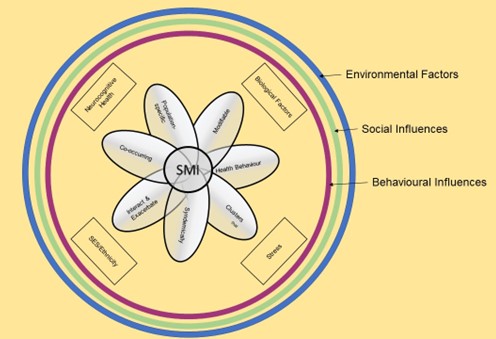The project investigates a potential Syndemic framework of modifiable health behaviours and their role in health experience for people diagnosed with a severe mental illness ((SMI) depression, bipolar disorder, or schizophrenia/psychosis disorder).
A Syndemic describes multiple co-occurring, interacting epidemics, and it describes how different illnesses together can improve or worsen the individual’s experience of health. Within this project, 5 different health behaviours were looked at, which all represent current epidemics in the UK: physical activity level, addictive behaviours (smoking and alcohol consumption), personal resilience level, exposure to nature, and sleep behaviour. Using a new analysis method to better understand the underlying connections, we found that all health behaviours are closely connected to each other – meaning being more active makes you more likely to sleep better, feel more resilient, smoke/drink less, and go outside more. All this combined is not strongly affecting health experience in people with SMI, however.

